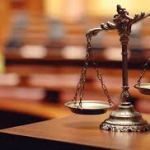Negative Preconceptions of Lawyers
 This semester in Professor Lisa Mazzie’s Advanced Legal Writing: Writing for Law Practice seminar, students are required to write one blog post on a law- or law school-related topic of their choice. Writing blog posts as a lawyer is a great way to practice writing skills, and to do so in a way that allows the writer a little more freedom to showcase his or her own voice, and—eventually for these students—a great way to maintain visibility as a legal professional. Here is one of those blog posts, this one written by 2L Desiree Geromini.
This semester in Professor Lisa Mazzie’s Advanced Legal Writing: Writing for Law Practice seminar, students are required to write one blog post on a law- or law school-related topic of their choice. Writing blog posts as a lawyer is a great way to practice writing skills, and to do so in a way that allows the writer a little more freedom to showcase his or her own voice, and—eventually for these students—a great way to maintain visibility as a legal professional. Here is one of those blog posts, this one written by 2L Desiree Geromini.
Being a lawyer comes with many associated preconceptions and many are not very positive. Though this is the case, from my experiences and discussions with fellow aspiring attorneys and those already in practice, the main motivator for entering the legal field is the desire to make a positive impact in people’s lives. In thinking about this discrepancy in public opinion and the motivating factors behind practicing and aspiring attorneys’ decision to become lawyers, it made me think about what I can do to spur a more positive spin on the profession. Though this is an uphill battle, the best plan of action I can think of is to use my voice to initiate open conversations with friends, family, colleagues, clients, and anyone who is willing to listen.


